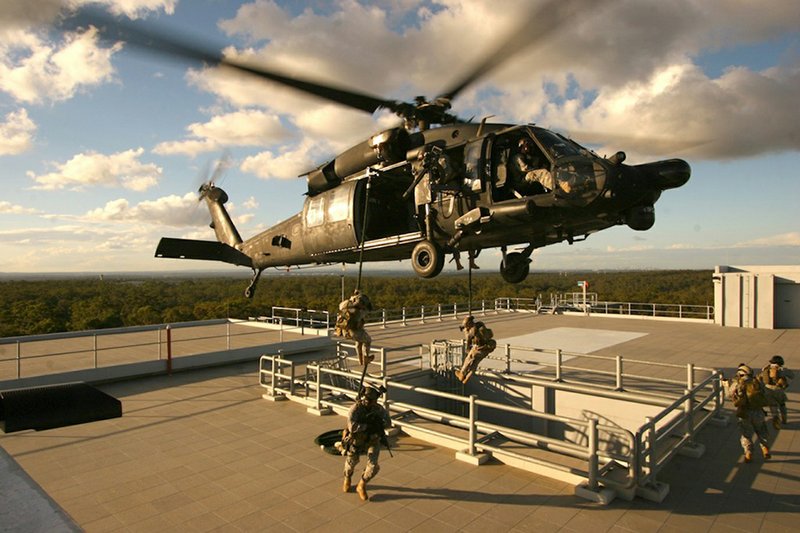Two female Army officers have been selected to enter the training pipeline to join all-male Special Forces units, becoming the first soldiers to do so since Defense Secretary Ashton Carter rescinded a ban on women from ground combat assignments.
The women are among 340 soldiers who were selected for Special Forces Assessment Selection, or SFAS, said Maj. Melody Faulkenberry, a spokesman for the U.S. Army John F. Kennedy Special Warfare Center and School at Fort Bragg, N.C. The news was first reported by The Washington Times.
The Army has not identified the women, beyond saying that one graduated from officer candidate school and the other was in a reserve officers' training course, a college-based commissioning program. They were selected by the Army Special Operations Office Accession Panel, which considered applications primarily from soldiers who entered the service in 2013, according to an Army message.
Last December, Carter repealed a longtime ban on women serving in ground combat assignments. The decision followed three female soldiers graduating from the Army's Ranger School last year when the service opened it to women as part of gender integration research, and after the performance of Army female cultural support teams, which deployed alongside Army Rangers and Special Forces teams in combat in Afghanistan.
Carter's move has proven controversial, with critics questioning whether full gender integration could weaken the military or cause unnecessary distractions. But proponents, including Carter, have said that if women can meet all requirements for a job, they should be allowed to do so and could in fact boost combat effectiveness.
The female soldiers selected for Special Forces training were among 860 who applied, including nine women, Faulkenberry said. The officer-selection panel is one of three ways in which soldiers can join Special Forces units. The other two include joining the Army as a Special Forces candidate and shifting into Special Forces as an enlisted soldier through the Army's Special Operations Recruiting Battalion; neither of those pathways have yet yielded any potential Green Berets.
Women have not attended Special Forces training in decades -- but it has happened before. One officer, then-Capt. Kathleen Wilder, qualified to join Special Forces in 1981 after fighting for more than a year to be allowed to take it. She failed a three-week field guerrilla warfare exercise in 1980, and later claimed that she was flunked because of sexual prejudice. The school's director denied her appeal for redress, but an Army investigation later carried out an investigation and awarded her the Special Forces certification, according to a UPI news account at the time.
The soldiers selected now still have a long way to go before earning the right to wear the distinctive green headgear. The Special Forces Assessment Selection process is a grueling, 21-day program in which candidates are identified only by a number, such as a "Candidate 122," and receive the majority of their instructions from dry-erase boards.
The first week of challenges, known as "gates," consists of physical fitness tests, running with weighted packs, and marches. Upon completion of gates, candidates move on to a land-navigation week, in which soldiers learn the basics of navigating with a map and compass before a final two-day and night exercise.
The third week is known as "team week." It pits the candidates on long missions with little sleep in which they must carry rucksacks weighing at least 75 pounds, and teams of soldiers must also carry unwieldy pieces of equipment that take multiple people to move.
Throughout the final stages of Special Forces Assessment Selection, individual candidates will be peer-reviewed by their fellow soldiers. Positive reviews are known as blue slips, while negative ones are called pink slips. At the completion of the program, the cadre of Special Forces soldiers selected to screen the candidates will take into account the aggregate of colored slips when deciding which candidates will move on to the Special Forces qualification course.
The qualification course -- better known as the "Q-course" -- takes more than a year, with intensive training on a foreign language, combat skills and training on a specific job such as communications or engineering. Toward the end of the Q-course is a training exercise known as Robin Sage, in which soldiers carry out a simulated operation in North Carolina that includes role players, blank gunfire and assaults on enemy strongholds.
Information for this report was contributed by Thomas Gibbons-Neff of The Washington Post.
A Section on 07/26/2016
